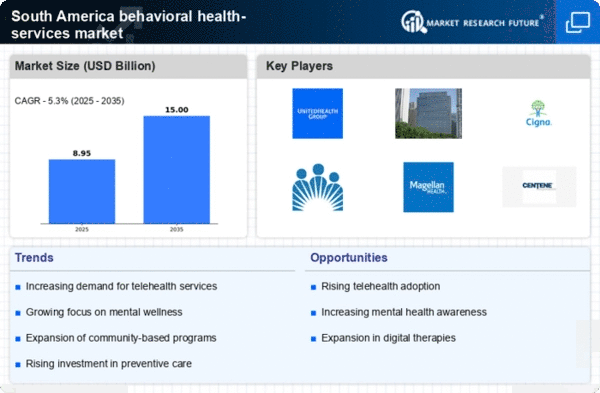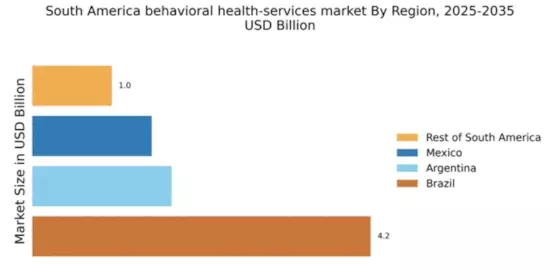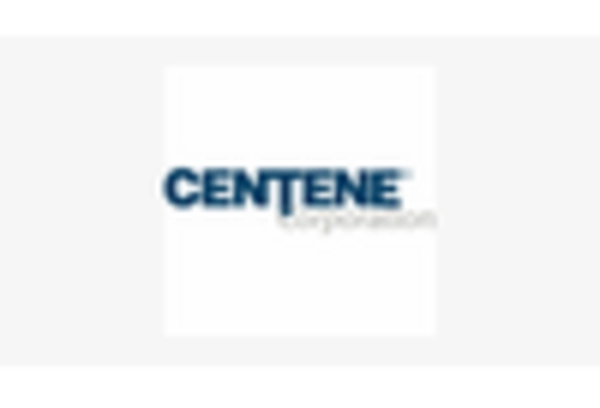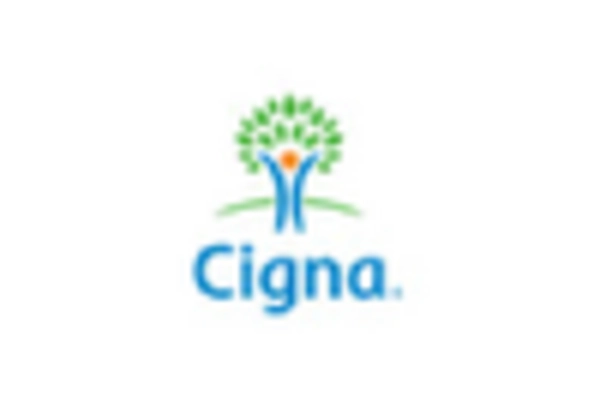Rising Mental Health Awareness
The growing awareness of mental health issues in South America is a pivotal driver for the behavioral health-services market. As societal stigma diminishes, more individuals are seeking help for mental health conditions. Reports indicate that approximately 30% of the population acknowledges experiencing mental health challenges, leading to increased demand for services. This heightened awareness is prompting both public and private sectors to invest in mental health initiatives, thereby expanding the behavioral health-services market. Furthermore, educational campaigns are being launched to inform communities about available resources, which may further enhance service utilization. The behavioral health-services market is likely to benefit from this cultural shift, as more people recognize the importance of mental well-being and actively pursue treatment options.
Policy Reforms and Legislative Support
Policy reforms aimed at enhancing mental health services are emerging as a crucial driver for the behavioral health-services market in South America. Governments are increasingly recognizing the need for comprehensive mental health policies that ensure access to care and protect patients' rights. Legislative support for mental health initiatives is gaining momentum, with funding allocations increasing by approximately 15% in recent years. These reforms are likely to create a more favorable environment for the behavioral health-services market, encouraging private sector participation and investment. Furthermore, as policies evolve to address mental health more effectively, the overall quality of services is expected to improve, which may lead to higher patient satisfaction and increased service utilization.
Increased Investment in Telehealth Solutions
The surge in telehealth solutions is reshaping the behavioral health-services market in South America. With the rise of digital platforms, access to mental health services has become more convenient and widespread. Data indicates that telehealth utilization for mental health services has increased by over 50% in recent years. This trend is particularly beneficial for individuals in remote areas where traditional services may be limited. The behavioral health-services market is likely to see continued growth as telehealth becomes a standard practice, allowing for flexible appointment scheduling and reducing barriers to care. Additionally, the cost-effectiveness of telehealth services may attract more patients, further driving market expansion. As technology continues to evolve, the potential for innovative solutions in behavioral health is vast.
Growing Focus on Preventive Mental Health Care
The emphasis on preventive mental health care is becoming a significant driver for the behavioral health-services market in South America. There is a growing recognition that early intervention can mitigate the severity of mental health issues and reduce long-term healthcare costs. Programs aimed at promoting mental wellness and resilience are being implemented across various sectors, including schools and workplaces. This proactive approach is likely to increase the demand for behavioral health services, as individuals seek to maintain their mental health rather than solely addressing crises. The behavioral health-services market stands to benefit from this shift towards prevention, as it aligns with broader health trends emphasizing holistic well-being. As preventive measures gain traction, the market may experience a notable increase in service offerings tailored to early intervention.
Integration of Behavioral Health in Primary Care
The integration of behavioral health services into primary care settings is transforming the landscape of the behavioral health-services market in South America. This model facilitates early identification and treatment of mental health issues, which is crucial given that many individuals do not seek specialized care. Studies suggest that integrated care can improve patient outcomes and reduce overall healthcare costs by up to 20%. As healthcare providers increasingly adopt this approach, the behavioral health-services market is expected to expand significantly. This integration not only streamlines access to care but also encourages collaboration among healthcare professionals, fostering a more holistic approach to patient health. Consequently, the behavioral health-services market is poised for growth as more primary care facilities incorporate mental health services into their offerings.

















